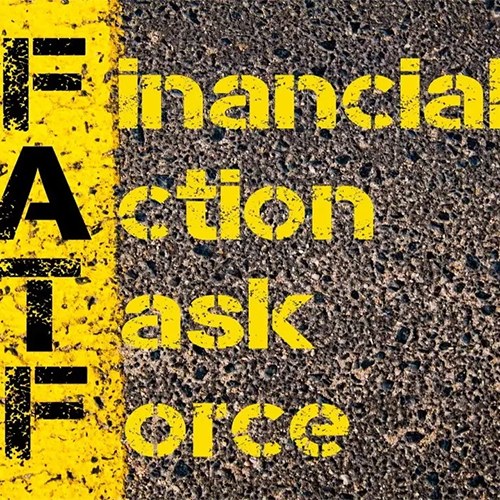The Financial Action Task Force (FATF) is a key intergovernmental body established in 1989 to combat money laundering and terrorist financing through global standards and recommendations. The blog covers the FATF's history, its functions in setting and monitoring international anti-financial crime standards, and its publication lists, including the whitelist, blacklist, and grey list. Learn how FATF's recommendations guide global AML/CFT efforts and how Anaptyss supports financial institutions in achieving compliance with these standards.
The Financial Action Task Force (FATF) is an intergovernmental organization that sets international standards and rules to prevent financial crimes and illegal activities, such as money laundering and terrorist financing.
As a policy-making body, the FATF aims to establish global standards to prevent financial crimes and mobilize the political will necessary to bring about national legislative and regulatory reforms in these areas.
The blog outlines the history of the FATF, its functions, recommendations, and lists for banks and other financial institutions to combat financial crimes such as money laundering and the financing of terrorism.
History of FATF
In response to the growing concern about money laundering, the G-7 summit held in Paris in 1989 established the Financial Action Task Force (FATF). The FATF originally included the European Commission, G7 countries, and eight other countries.
The 39-member group establishes international standards to guarantee that national law enforcement can pursue illegal funds linked to serious crimes like cybercrime, the illicit arms trade, and drug trafficking effectively.
In total, more than 200 countries and jurisdictions have committed to implementing the FATF Standards as part of a coordinated global response to preventing organized crime, corruption, and terrorism.
FATF Functions
The objectives of the FATF are:
- To establish guidelines, set standards, and encourage effective implementation of legal, administrative, and operational measures to combat money laundering, financing of terrorism, and other threats to the integrity of the global financial system.
- The FATF monitors countries’ progress in implementing the FATF Recommendations and promotes global adoption and implementation of the FATF Recommendations.
- Examine money laundering and terrorist financing techniques & countermeasures.
- Evaluate the effectiveness of #AML rules and regulations.
- Encourage the adoption of AML/CFT guidelines at a global scale.
FATF Recommendations
FATF Recommendations are a comprehensive and consistent framework of measures that countries should implement to combat money laundering and terrorist financing, as well as the financing of the proliferation of weapons of mass destruction. The FATF risk-based approach (RBA) is central to the effective implementation and managing Financial Crime Compliance (FCC).
Countries have differing legal, administrative, and operational frameworks and varying financial systems. Therefore, all countries cannot take identical measures to counter these threats.
What are FATF Lists or Publication Lists
In 2000, the FATF issued its first list of “Non-Cooperative Countries or Territories”. The FATF members on the list are believed to be uncooperative in international efforts to combat money laundering and, later, terrorist financing.
The most common breach of the FATF mandate is a jurisdiction’s unwillingness or inability to provide other foreign authorities with information relating to ongoing investigations of suspected international money laundering, such as client or bank account details.
FATF has Three Types of Lists:
Whitelist – A list of individuals and entities whose characteristics cause an AST (automated screening tool) to hit or alert them but are not found to match a sanctions list. Some ASTs allow users to attach additional information that supports the conclusion that this person or entity is not a sanctions target and should be added to the whitelist.
Blacklist – Countries knowns as Non-Cooperative Countries or Territories (NCCTs) are put on the blacklist. These countries aid in terrorist financing and money laundering. The FATF updates the blacklist regularly, adding and removing entries.
Grey List – Countries that are considered a haven for supporting terror funding and money laundering are put on the FATF grey list, which also serves as a warning to the countries that may enter the blacklist.
FATF Compliance with Domain-Centric Approach
FATF aims to prevent financial crimes, such as money laundering, finance for terrorism, and illegal activities that cause harm to society. Banks and financial institutions play a pivotal role in combating such financial crime activities. To comply with FATF regulatory norms, they need to constantly scan, monitor and report their customers’ suspicious activities.
At Anaptyss, we assist banks and financial institutions meet FATF regulations and AML/CFT compliance by leveraging our exclusive Digital Knowledge Operations™ framework and deep-domain expertise in anti-money laundering (AML) and countering finance for terrorism (CFT).
Ensure Compliance with FATF Standards—Partner with Anaptyss for Expert Guidance and Robust AML Solutions. Write to us at: info@anaptyss.com


















